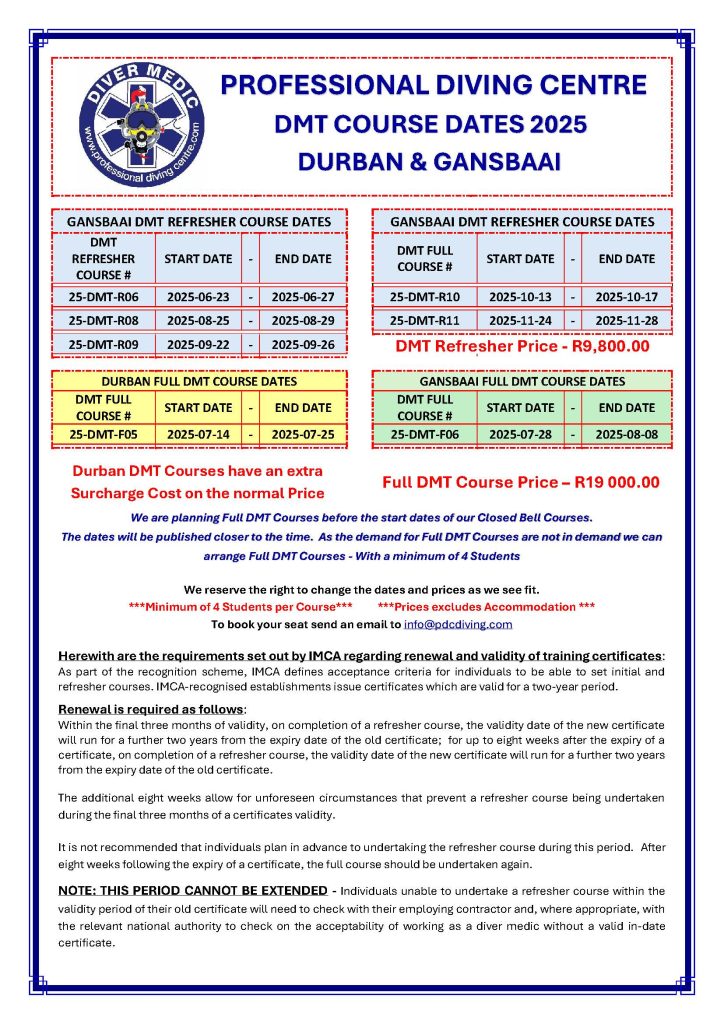Email Us At info@pdcclosedbell.com
Professional Diving Centre – IMCA DMT Training
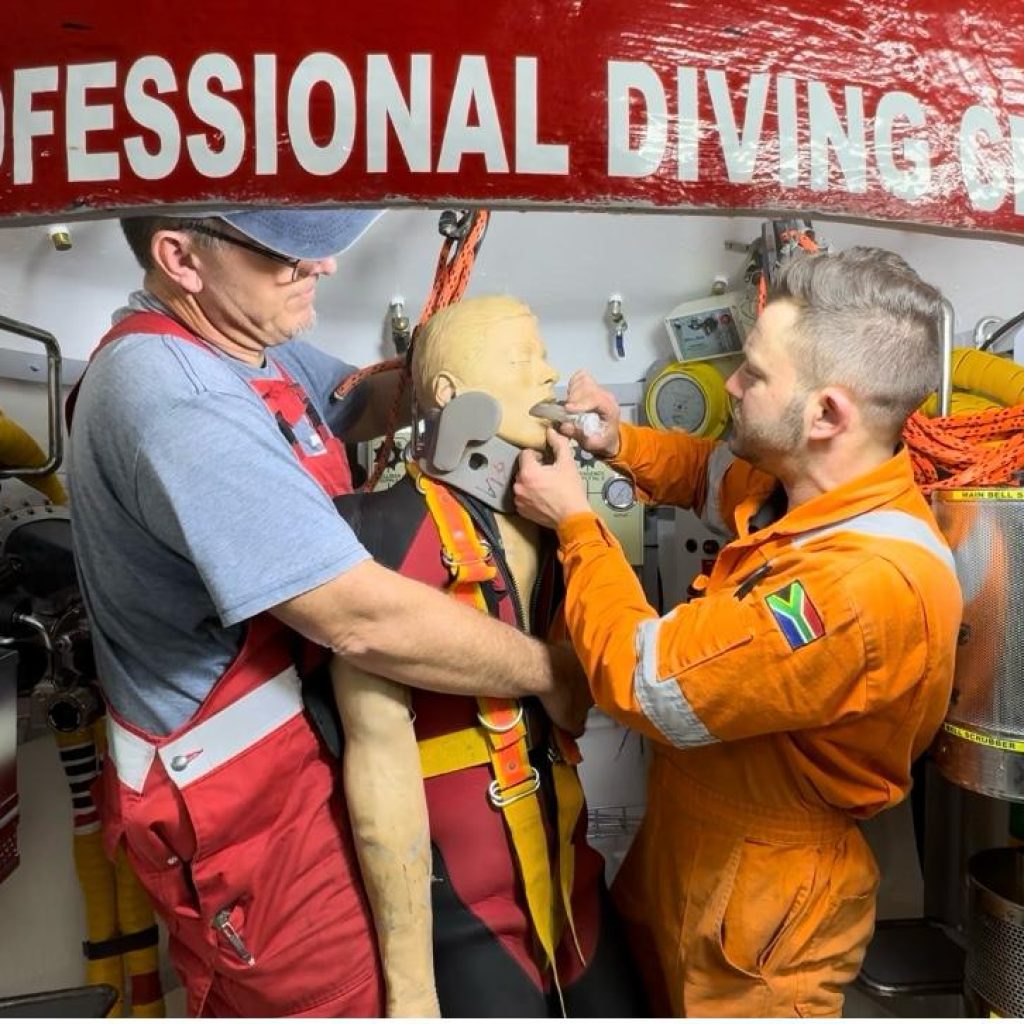
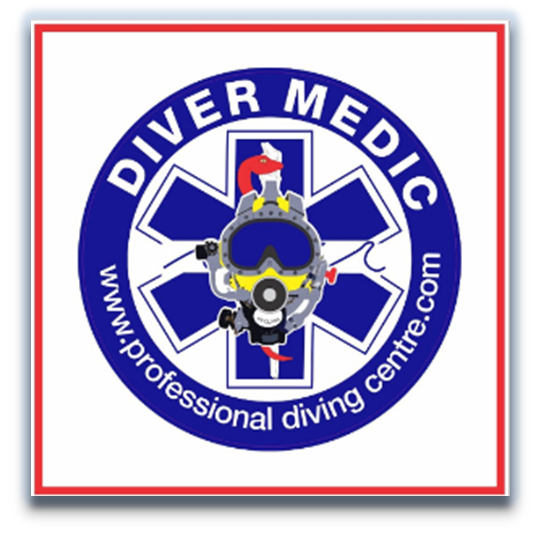
Purpose of a DMT
In accordance with the guidance set out in IMCA D014 IMCA International Code of Practice for Offshore Diving, there is a requirement for at least one member of a dive team who is not diving, other than the supervisor, to be trained in advanced first aid. IMCA refers to this person as a “Diver Medical Technician” (DMT). DMTs are divers or life support personnel who have had advanced first aid training to enable them to operate in remote locations, i.e. offshore or in a chamber with the provision of external medical support.
DMTs, whilst being able to deliver initial first aid support, are unable to use their advanced skills without the guidance of a qualified physician.
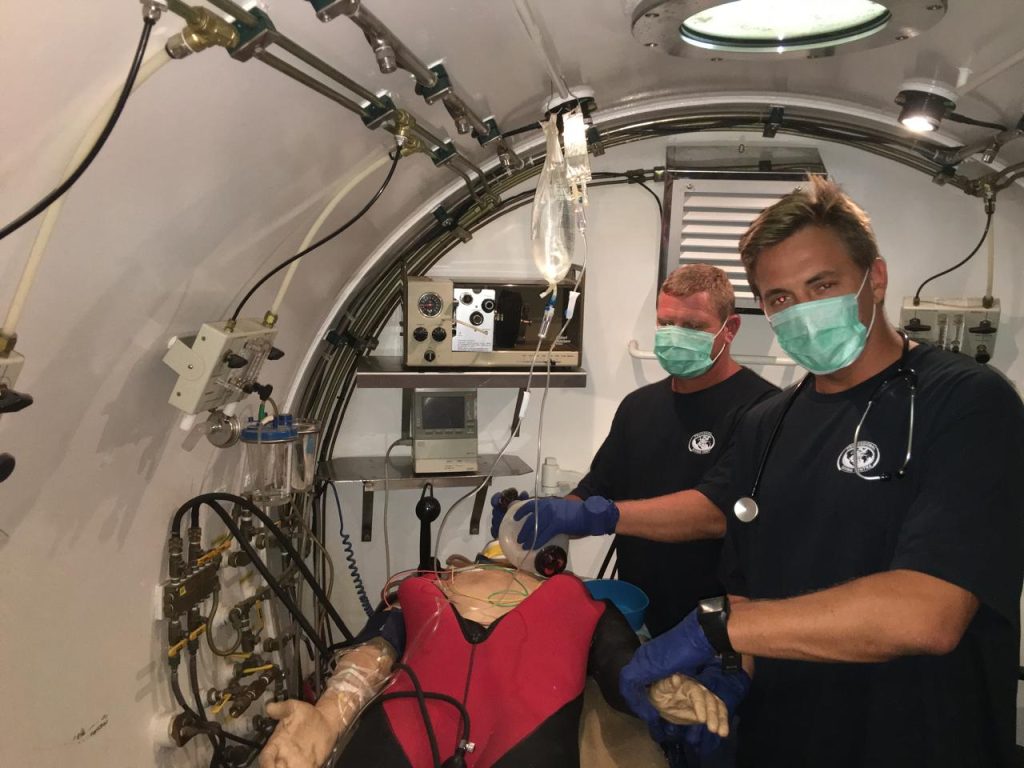

Professional Diving Centre - Full DMT Course – 10 days Mondays to Fridays (60 hours)
The course has practical training in the following skills which are no less than 50% of the programmed course training time:
- identification of, maintenance and the use of the first aid equipment to be held at the site of an offshore diving operation as detailed in DMAC 15 (a DMAC 15 kit should be available for candidates throughout all practical exercises)
- the management of medical emergencies within a diving bell, g. external cardiac massage
- demonstrate throughout the practical exercises the methods of caring for a casualty on site
- demonstrate the methods of care when moving injured personnel around a dive system,
PDC examples from the diving bell to the main chamber or from a chamber to a vessel’s medical facility including an understanding of the difficulties of transport by helicopter
- practical medical record keeping (including confidentiality) and liaison with medical services/communication with medical personnel, including the use of a suitable aide mémoire for recording and transmitting medical data (use of DMAC 01)
- use, hazards and delivery of the drugs and intravenous fluids carried in the publication DMAC 015 including practice in the skills of:
- setting up intravenous and intraosseous infusions
- parenteral administration of drugs; subcutaneous, intramuscular, and intravenous
- suturing and use of paper stitches
- practical teaching of male and female urinary catheterisation
- practical viral testing
- the importance of personal hygiene and aseptic techniques in the management of injuries; throughout all practical exercises, demonstrate the effective use of PPE in restricting the transmission of disease and/or infections including donning and doffing of PPE
- theoretical teaching and practice demonstration of the insertion of pleural drain for pneumothorax
- practical airway maintenance, including use of:
- oropharyngeal airway
- nasopharyngeal airway
- laryngeal mask (i-gel) airways
- bag valve mask ventilation
- endotracheal intubation, (although the limitations and application need to be clearly explained)
- the systematic method of examining injured or ill patients including divers
- the neurological examination of a diving casualty, including rapid and full examinations
Professional Diving Centre Refresher DMT Course Mondays to Fridays (30-hours) – 5 days
The following topics are included in the DMT refresher programme:
- physical examination of patient
- update on the use of aide mémoire and on systems of communication with medical personnel
- review of care and management of a casualty
- review and update on current aspects of resuscitation, with session on the practical aspects
- review and update on practical developments in:
- decompression illness
- barotrauma
- thermal changes in divers
- oxygen toxicity
- diving accidents
- methods for monitoring vital signs such as pulse, respiratory rate, skin tone, pupil reaction, speech, blood pressure, temperature (including use and reading of a low-reading thermometer), blood glucose analysis and urinalysis
- the administration of oxygen and use of pulse oximeters
- practical placement of ECG leads
- application and use of a telemedicine system whilst offshore and inside a Diving Bell
Requirements for Refresher Certification of Existing IMCA Diver Medics
As part of the recognition scheme, IMCA defines acceptance criteria for individuals to be able to set initial and refresher courses. IMCA-recognised establishments issue certificates which are valid for a two-year period.
Renewal is required as follows:
Within the final three months of validity, on completion of a refresher course, the validity date of the new certificate will run for a further two years from the expiry date of the old certificate;
For up to eight weeks after the expiry of a certificate, on completion of a refresher course, the validity date of the new certificate will run for a further two years from the expiry date of the old certificate.
The additional eight weeks allow for unforeseen circumstances that prevent a refresher course being undertaken during the final three months of a certificates validity.
It is not recommended that individuals plan in advance to undertaking the refresher course during this period.
After eight weeks following the expiry of a certificate, the full course should be undertaken again.
NOTE: THIS PERIOD CANNOT BE EXTENDED – Individuals unable to undertake a refresher course within the validity period of their old certificate will need to check with their employing contractor and, where appropriate, with the relevant national authority to check on the acceptability of working as a diver medic without a valid in-date certificate.
Non-IMCA-Recognised Certification
Training establishments may accept any individual onto a Diver Medic training course, irrespective of background. This might include vessel medics wishing to increase their knowledge of diving medical issues.
However, if they do not meet the requirements set out in the IMCA D020 – Rev. 1.3 – September 2024, Section 5.1, page 10, then they are not eligible for an IMCA-recognised certificate. Course completion certificates for these individuals must not make any reference to IMCA. No further details are provided in relation to assessment and certification (Section 9) for such individuals.
NUI COMPACT CHEST COMPRESSION DEVICE – NCCD
NCCD is a compact, lightweight chest compression device to be used as a substitute to manual chest compression during CPR. NCCD is powered by compressed gas and designed for use in hyperbaric environments.
For more information kindly visit NCCD website – https://www.nui.no/nccd/
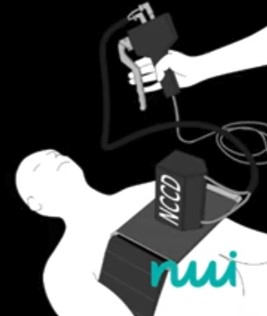
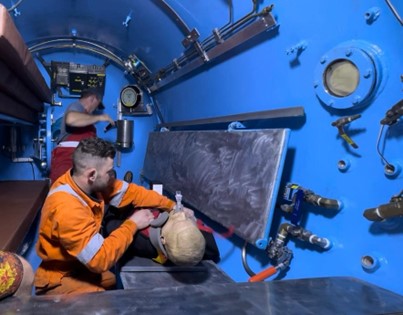
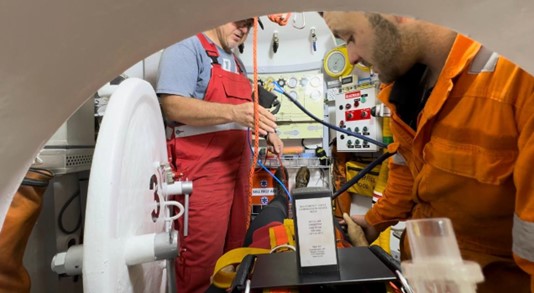
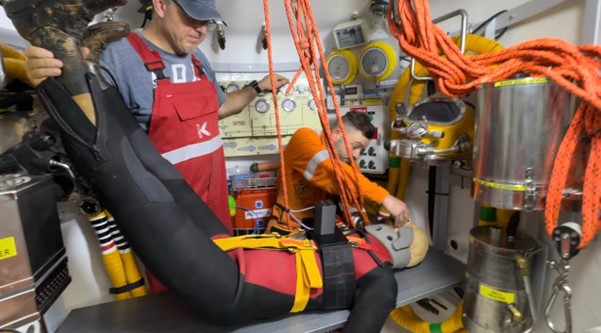
All PDC – DMT Courses from October 2024 onwards will include the Closed Bell Resuscitation Training using the NUI – NCCD unit. The training will be for Air Divers as well as Closed Bell Divers as Air Divers can upgrade to Closed Bell Divers and then they already have the NUI – NCCD.
Students that did their DMT Courses with PDC prior to October 2024 who have a in date DMT Certificate are welcome to attend the NUI – NCCD training at no extra cost.
To attend our DMT Training please send an email toinfo@pdcdiving.com to schedule and book your training.
